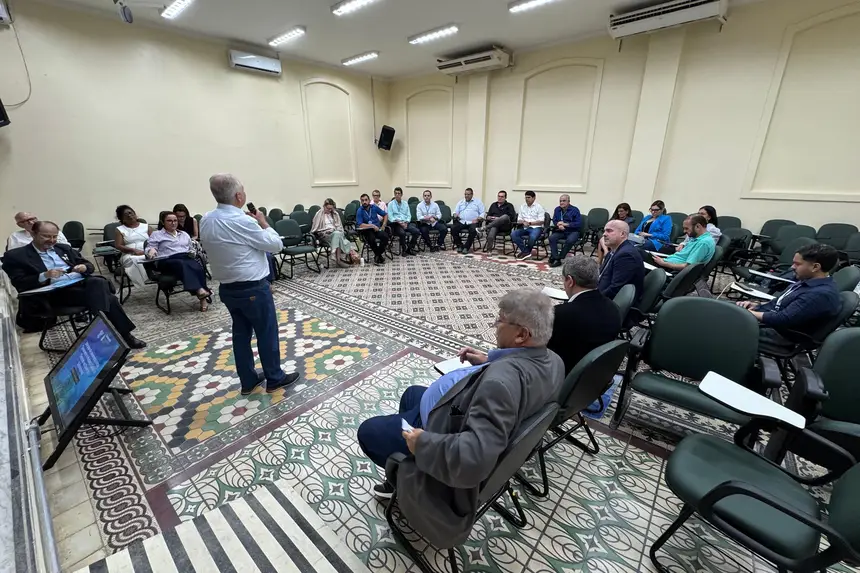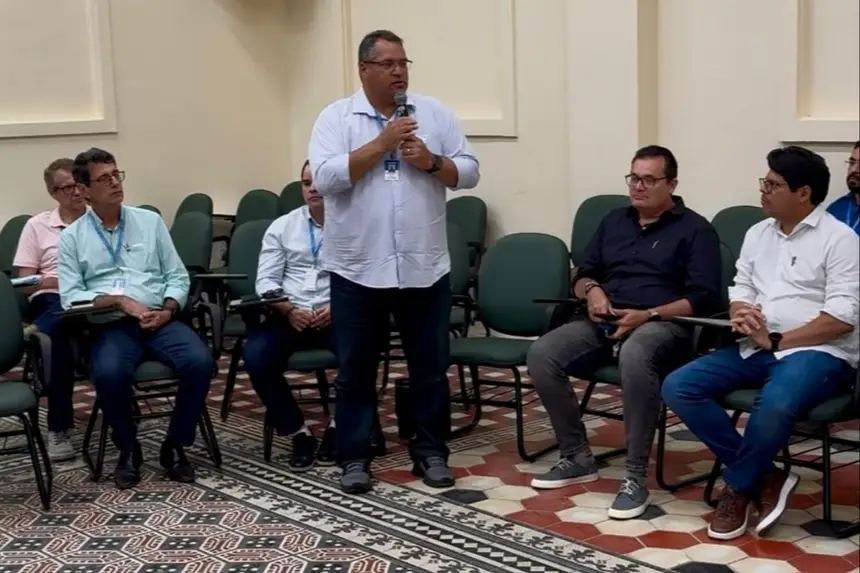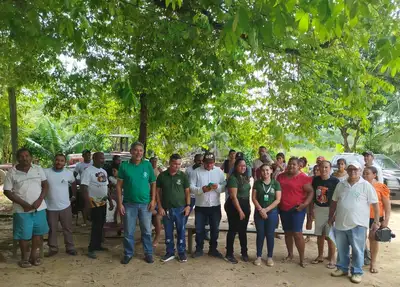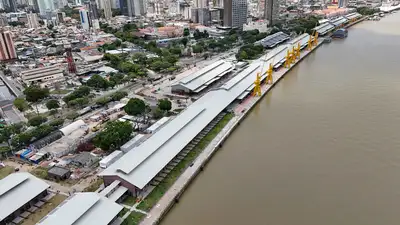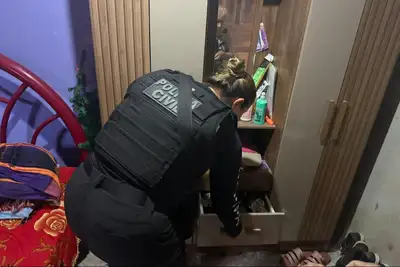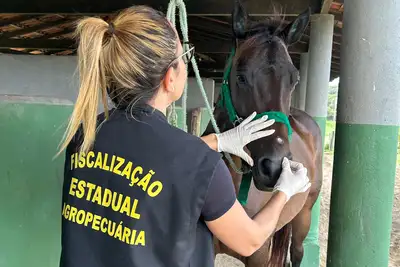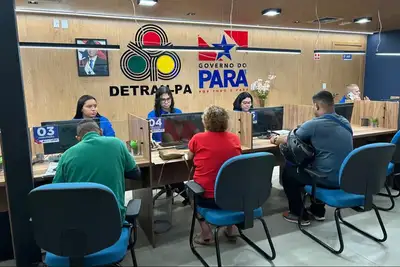Cosanpa participates in a chat about sanitation and climate change at the Sanitation House during COP30
Meeting promoted by Aesbe at the Sanitation House discussed guidelines and strategies for the sector's adaptation to climate change
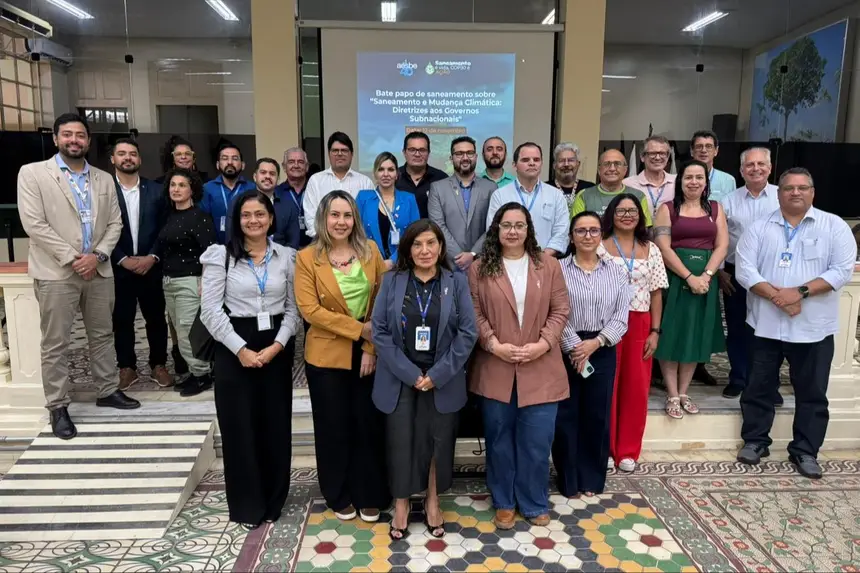
The Sanitation Company of Pará (Cosanpa) participated, this Wednesday (12), in the chat "Sanitation and Climate Change: Guidelines for Subnational Governments," promoted by the Brazilian Association of State Sanitation Companies (Aesbe), at the Sanitation House in Belém. The event brought together representatives from state companies, public managers, and sector technicians to discuss the challenges and adaptation strategies of sanitation in the face of climate change.
The opening was made by the president of the National Health Foundation (Funasa), Alexandre Motta, who explained the origin and purpose of the Sanitation House.
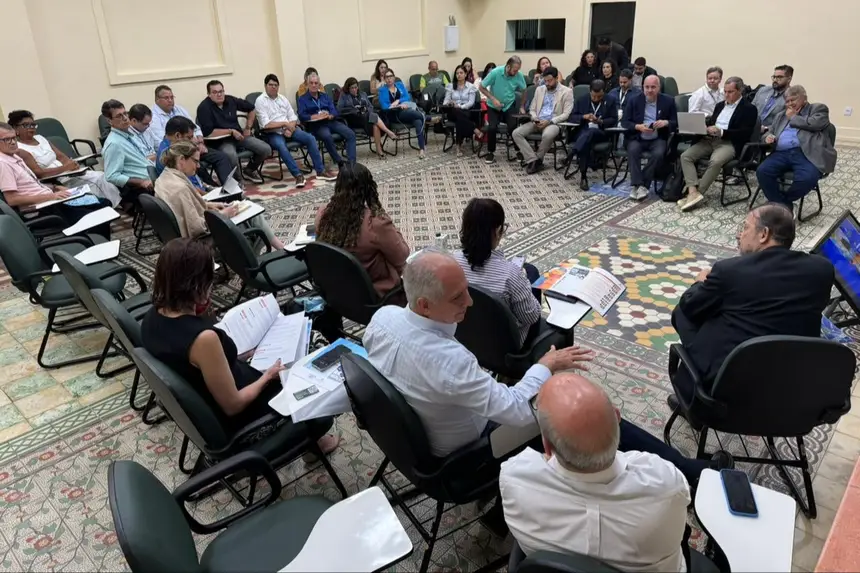
“The Sanitation House was born out of a demand from the sector to participate in COP. There was an understanding that there is no water security without a serious discussion about sanitation. The space was created to unite efforts, expand dialogue, and place sanitation on the public agenda. Today, 18 institutions come together here to show that sanitation is strategic for development and for people's health,” highlighted the president of Funasa.
During the meeting, Aesbe presented the document "Guidelines for Addressing Climate Change," part of the Universalizar series, which gathers 60 recommendations collectively developed over a year by the associated state companies.
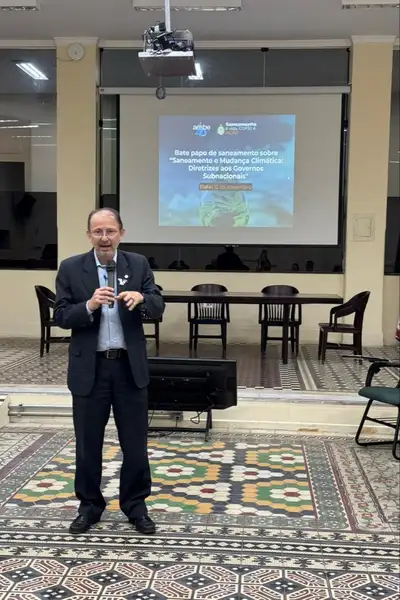
“The document correlates climate change with water, sewage, solid waste, and urban drainage services. It serves as a management support tool, so that each provider can recognize itself in the challenges and improve its actions,” explained Aesbe's executive director, Sérgio Gonçalves.
Cosanpa's participation reinforced the role of sanitation in mitigating the effects of climate change and preserving water resources. The president of the Company, Colonel Dilson Júnior, highlighted that Cosanpa is experiencing a new moment after the advancement of the sanitation concession process in the State, with efforts also focused on rural sanitation.
“COP 30 allows us to learn about practices that can strengthen our actions and inspire new solutions. Today, Cosanpa faces the challenge of expanding sanitation to rural areas, which requires planning, innovation, and dialogue with communities. So, being here, debating and learning, reaffirms Cosanpa's commitment. This is our contribution to a more balanced future, where development walks hand in hand with the preservation of the Amazon,” stated the president.


